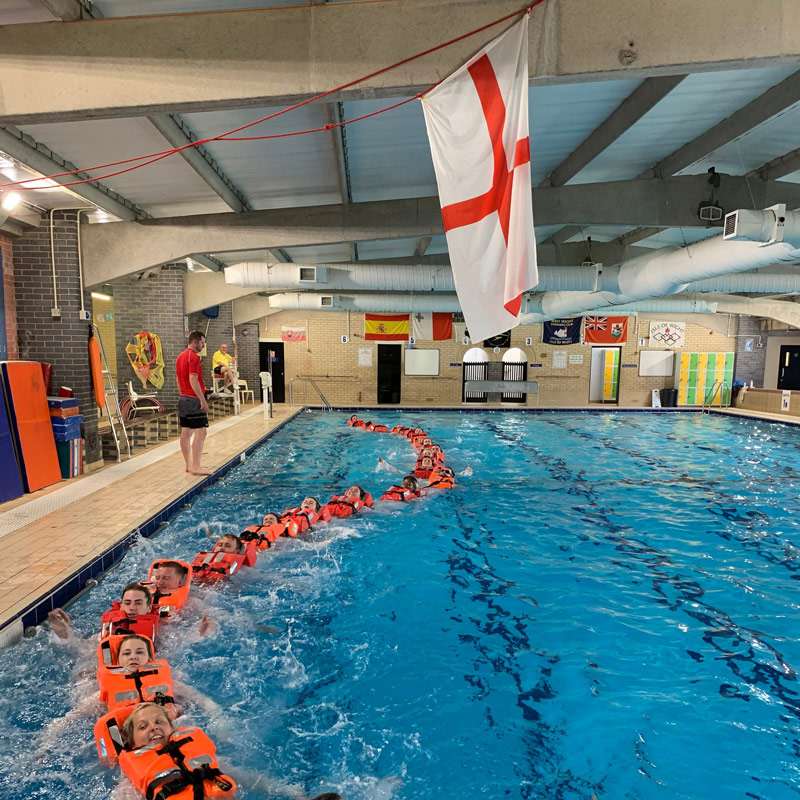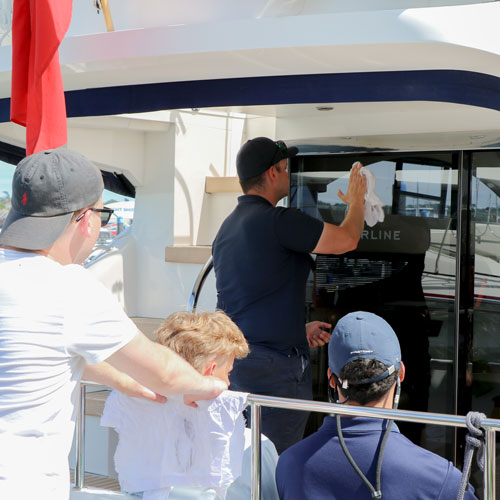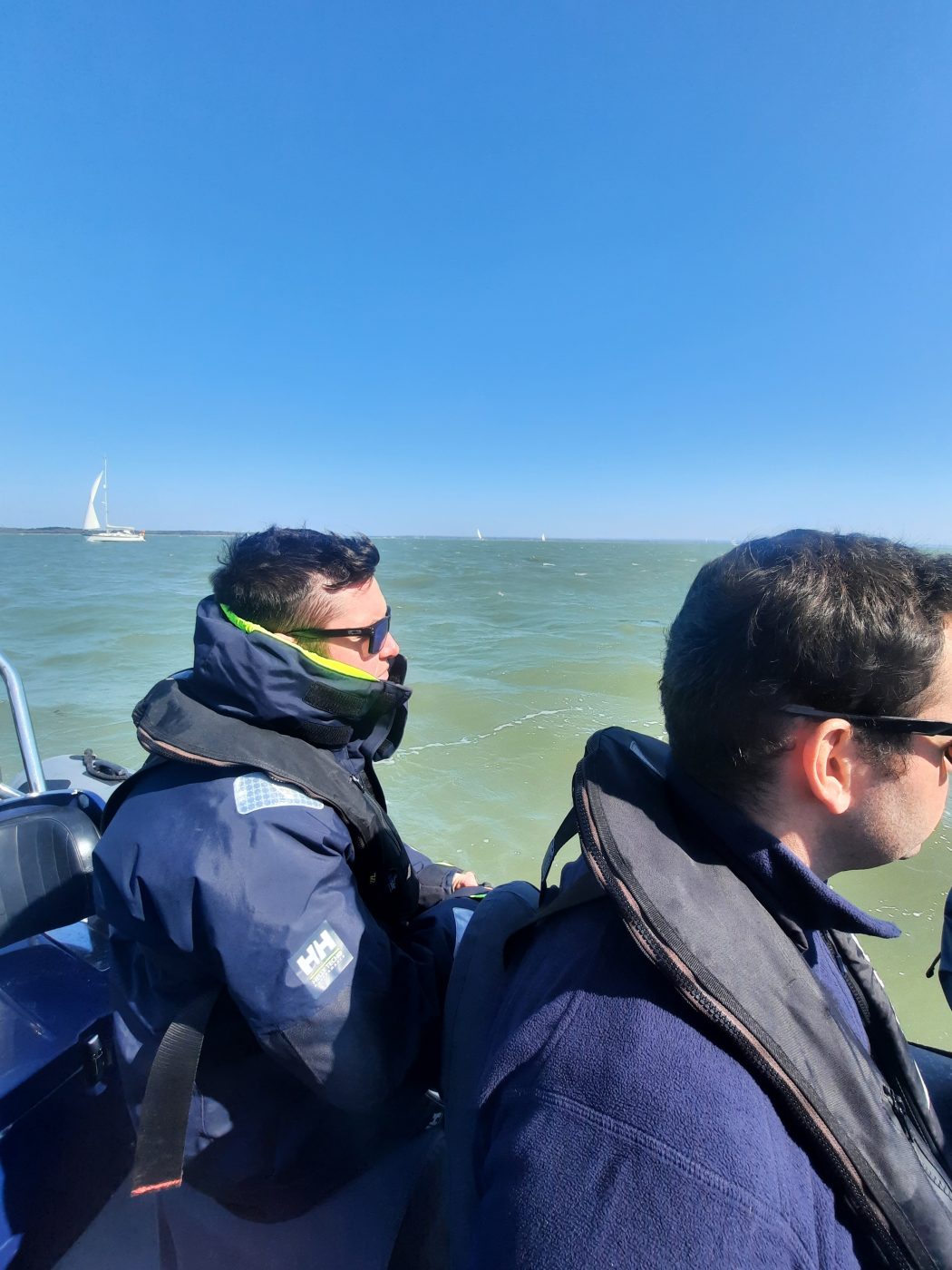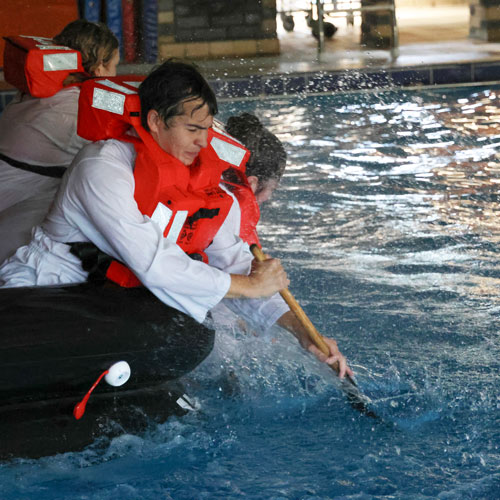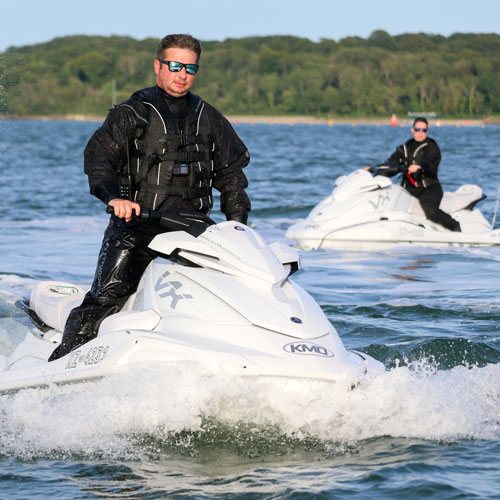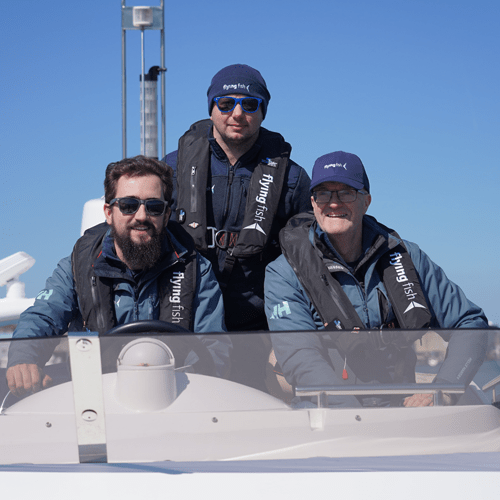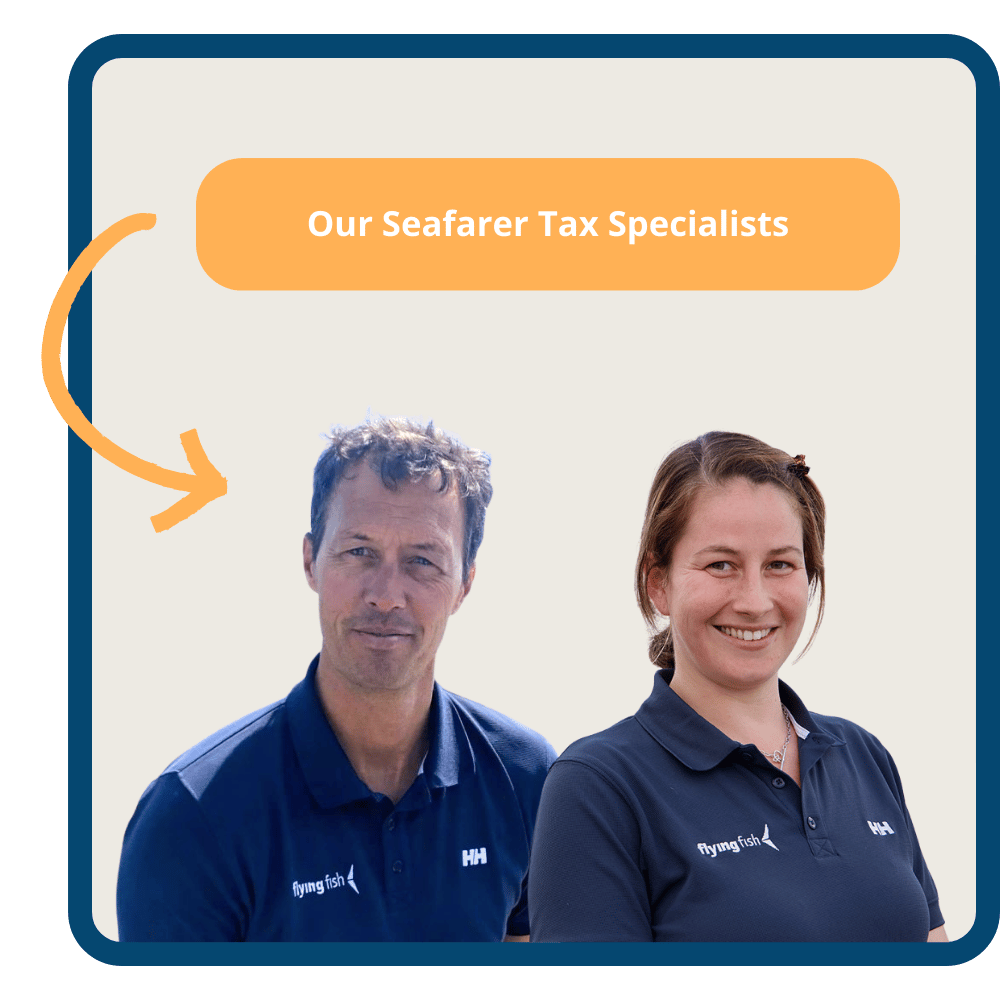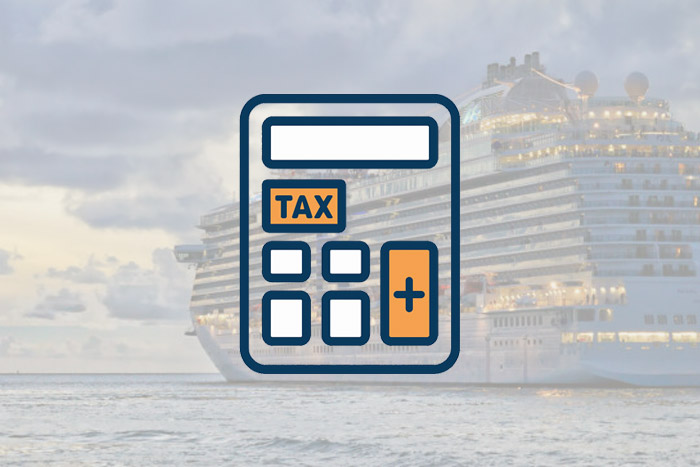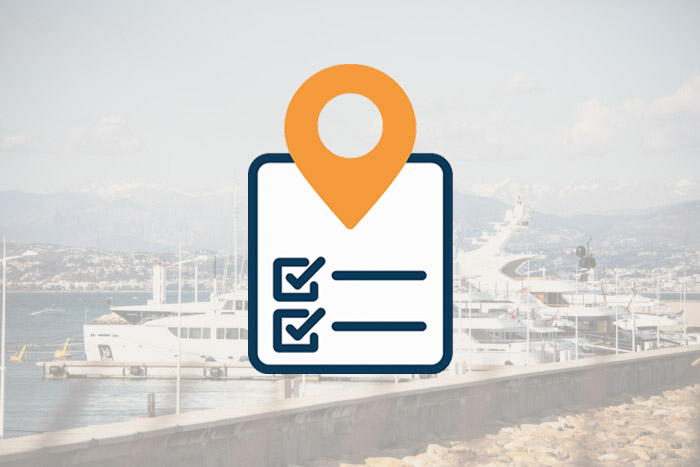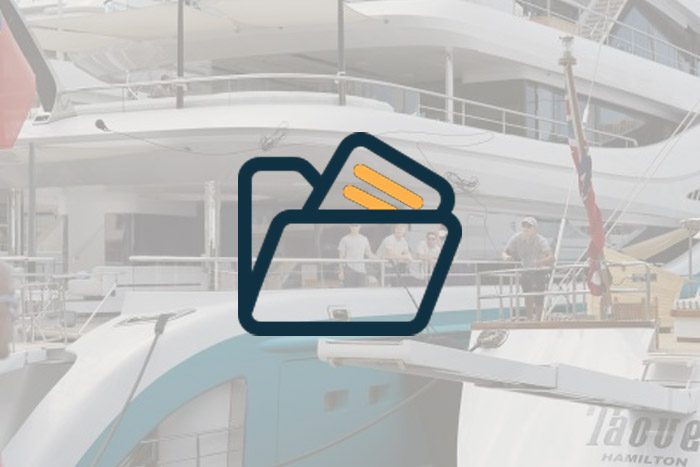
Your course begins with a welcome briefing at 13:30 on your start date, and finishes at 17:00 on your final day.
Our address
124 High Street
Cowes
Isle of Wight
PO31 7AY
If you’re unsure about travel times or need help planning your route, just drop us a message. We’re here to help.
+44 (0)1983 280641
info@flyingfishonline.com
What to pack
The yachting industry values good timekeeping and a smart/casual appearance, and we follow the same principles at Flying Fish. To help ease you into the expectations of life on board, we ask all students to dress accordingly throughout the course.
Our general dress code is smart/casual, think neat, tidy and practical. There’s no need to pack too much, as washing machines are available in your accommodation. There is no need to buy expensive ‘yachtie’ gear or deck shoes, just bring what you have that fits the smart/casual brief.
Your general checklist
Our UK weather can be unpredictable, so bring clothing for both warm and wet conditions. Most of our students fit everything into a 70-litre bag so aim to pack light, but ready for anything.
Passport or Driving Licence
Swimming kit & towel
Toiletries
Pen & paper
Laptop or tablet
Water bottle
Sunglasses
Gloves, woolly hat, thermals and warm socks for winter months
Keep scrolling to see a guide of what clothes you need to pack.
Note: We will provide wet weather gear and lifejackets for on-water training when required. We will also provide wetsuits in the summer and drysuits in the winter for the Jet Ski Course.
What clothes to bring
2 x pairs of smart jeans or chinos
Shorts (depending on the temperature)
Smart casual shoes for classroom-based activities
3 x plain polo or T-shirts
2 x Fleece or jumpers
For the firefighting course
These clothes will get dirty and smelly
Lightweight long trousers/ leggings (not jeans)
Socks (not ankle socks)
Cotton T-Shirt
For practical and on water training
In addition to the above, you will need
Trainers or similar for outdoor use. No open footwear to be worn during practical training sessions
Activity shorts for summer
Activity trousers for winter (not jeans)
Waterproof jacket
u003ch2u003eSeafarers Tax Serviceu003c/h2u003ernIf you work at sea on any commercial vessel, from a Cruise Ship to a Superyacht, you may be required to complete a Seafarers Self Assessment tax return in your home country. Our Seafarers Tax Service is designed to make that process as simple and stress-free as possible.rnrnFor example, if you are a UK citizen, UK resident, or hold a UK National Insurance number and work outside the UK on a commercial vessel, HMRC usually requires you to submit a Self Assessment Tax Return each year. You’re expected to declare any income earned while working on a ship, including Superyachts, Cruise Ships, and other vessels.rnrnWe helps hundreds of crew members each year stay compliant and avoid costly mistakes with their tax returns.
u003ch3u003eWhy should you use a Seafarer’s Tax specialist?u003c/h3u003ernWorking at sea often means your schedule is packed. It’s easy to put off admin tasks like tax returns. But failing to file correctly, or missing the deadline, can result in penalties from HMRC.rnrnThat’s why our service is so popular. As specialists in Seafarers’ tax, we take the stress off your plate and ensure everything is handled properly.
u003ch3u003eFAQ’su003c/h3u003e
Since this is your first Self-Assessment Tax Return, there are a few essential extra steps you’ll need to take straight away:rnrnu003cstrongu003eStep 1. Set up your Personal Tax Account (PTA)u003c/strongu003ernrnThis is your secure HMRC account where you’ll access your tax records. It will take around 10 minute to set up.rnrnu003cstrongu003eStep 2. Apply for or provide your Unique Taxpayer Reference (UTR)u003c/strongu003ernrnWe’ll apply for your UTR once you complete your registration form. Once it’s issued, it will appear in your Personal Tax Account and arrive by post.rnrnBut don’t worry about any of this yet, we’ll send reminders via email and WhatsApp to help you stay on track with these steps. You can always contact us if you’re unsure about anythingrnrnThese tasks are one-time jobs so once you’ve completed them future tax years will be much simpler.
u003cstrongu003eFor first-time customers, the full process can take 4-6 weeks. Most of that is waiting for HMRC to send letters to your registered address. u003c/strongu003eFor returning customers, it’s much quicker.rnu003ch4u003eu003cstrongu003eFirst time customers u003c/strongu003eu003c/h4u003ernIf this is your first time claiming, here’s how it works:rnrnu003cstrongu003eSet up a Personal Tax Accountu003c/strongu003ernYou’ll need to register with HMRC online to manage your tax account – u003cstrongu003e10 minutes.u003c/strongu003ernrnu003cstrongu003eApply for a UTR (Unique Taxpayer Reference) Numberu003c/strongu003ernThis typically takes u003cstrongu003e2–3 weeksu003c/strongu003e to arrive by post.rnrnu003cstrongu003eAuthorise us to become your tax agentrnu003c/strongu003eOnce we have your UTR, we’ll apply to become your authorised tax agent. HMRC will send a code to your registered address, which can take u003cstrongu003eup to 4 weeksu003c/strongu003e.rnrnu003cstrongu003eGet everything ready while you waitu003c/strongu003ernWhile we wait for the authorisation code, you can send us your earnings and travel dates via our online forms, so we’re ready to go.rnrnu003cstrongu003eSubmit your tax returnu003c/strongu003ernAs soon as we’re authorised, everything’s in order and you’ve approved our calculations, we’ll submit your return.rnu003ch4u003eReturning customersu003c/h4u003ernIf you’ve used Flying Fish before, things are much faster. Just send us your latest earnings and travel history, and we can get started right away and there is no need to repeat the setup steps.
Put simply, a Seafarer is somebody who is employed to work on a seagoing ship.
u003ca href=u0022https://www.flyingfishonline.com/news/seafarers-earnings-deduction/u0022 target=u0022_blanku0022 rel=u0022noopeneru0022u003eSeafarers Earnings Deductionu003c/au003e (SED) is a tax relief available to individuals who work on board a ship outside the UK, as long as they meet certain conditions.rnu003ch3u003eAm I eligible for SED?u003c/h3u003ernThe three basic rules to be eligible for SED, the are:rnu003colu003ern tu003cliu003eWorked on a shipu003c/liu003ern tu003cliu003eWorked outside the UK for the qualifying period, usually 365 days.u003c/liu003ern tu003cliu003eAre a UK residentu003c/liu003ernu003c/olu003ernIn addition to the three rules, there are some other coniderations to qualifying for SEDrnu003culu003ern tu003cliu003eYou have at least one voyage that begins and ends at a foreign port, in each qualifying periodu003c/liu003ern tu003cliu003eYou cannot spend 183 or more continuous day in the UK.u003c/liu003ernu003c/ulu003ernu003ch3u003eDo I qualify for SED?u003c/h3u003ernWhen you are signed up to our Seafarers Tax Service, we can assess if you meet the requirements for the Seafarers Earnings Deduction Scheme (SED). We will submit your SED claim (if eligible) along with your annual return, giving you peace of mind that it is done correctly.
If you are working on a Superyacht, Cruise ship or any commercial vessel and you comply with the Seafarers Earning Deduction scheme mentioned above, then you probably won’t need to start paying off your Student loan.rnrnIf you have a Student Loan then please u003ca href=u0022https://www.flyingfishonline.com/news/do-i-need-to-pay-off-my-student-loan-if-i-work-on-a-superyacht/u0022 target=u0022_blanku0022 rel=u0022noopeneru0022u003eclick her for more information.u003c/au003e
u003cspan style=u0022font-weight: 400;u0022u003eYes.u003c/spanu003ernrnu003ca href=u0022https://www.flyingfishonline.com/news/tax-advice-for-yacht-crews/u0022u003eu003cspan style=u0022font-weight: 400;u0022u003eWhatever role you undertake on boardu003c/spanu003eu003c/au003eu003cspan style=u0022font-weight: 400;u0022u003e a Superyacht – whether that’s au003c/spanu003eu003ca href=u0022https://www.flyingfishonline.com/career-paths/the-superyacht-pathway/become-a-superyacht-deckhand/u0022u003e u003cspan style=u0022font-weight: 400;u0022u003eDeckhandu003c/spanu003eu003c/au003eu003cspan style=u0022font-weight: 400;u0022u003e,u003c/spanu003eu003ca href=u0022https://www.flyingfishonline.com/career-paths/the-superyacht-pathway/become-a-stewardess-on-a-superyacht/u0022u003e u003cspan style=u0022font-weight: 400;u0022u003eStewardessu003c/spanu003eu003c/au003eu003cbu003e,u003c/bu003eu003cspan style=u0022font-weight: 400;u0022u003e or Captain you will need to complete a Self Assessment Tax Return each year. u003c/spanu003ernu003ch3u003eu003cspan style=u0022font-weight: 400;u0022u003eBut why?u003c/spanu003eu003c/h3u003ernu003cspan style=u0022font-weight: 400;u0022u003eSeafarers are paid a Gross Salary. Gross means no deductions are taken from your salary (Tax or National Insurance).u003c/spanu003ernrnu003cspan style=u0022font-weight: 400;u0022u003eIf deductions are not taken at source, you are legally required to declare your earnings to HMRC each tax year via a Self-Assessment Tax Return.u003c/spanu003ernu003ch3u003eu003cspan style=u0022font-weight: 400;u0022u003eBut I thought my Salary was tax-free.u003c/spanu003eu003c/h3u003ernu003cspan style=u0022font-weight: 400;u0022u003eMaybe. u003c/spanu003ernrnu003cspan style=u0022font-weight: 400;u0022u003eAs long as you comply with what’s called the u003c/spanu003eu003ca href=u0022https://www.flyingfishonline.com/news/seafarers-earnings-deduction/u0022u003eu003cspan style=u0022font-weight: 400;u0022u003eSeafarers’ Earnings Deduction Schemeu003c/spanu003eu003c/au003eu003cspan style=u0022font-weight: 400;u0022u003e, or SED for short. This is a part of Tax law that applies to Seafarers.u003c/spanu003ernrnu003cspan style=u0022font-weight: 400;u0022u003eYou still need to submit a Self Assessment Tax Return each year but will not need to pay tax on these earnings.u003c/spanu003ernrnu003cspan style=u0022font-weight: 400;u0022u003eIf you are working on a Superyacht, Ship, or Cruise Ship then u003c/spanu003eu003ca href=u0022https://www.flyingfishonline.com/contact-us/u0022u003eu003cspan style=u0022font-weight: 400;u0022u003eget in touchu003c/spanu003eu003c/au003eu003cspan style=u0022font-weight: 400;u0022u003e or simply sign up and Flying Fish will take care of the rest.u003c/spanu003e
The time limit for submitting a tax return 31st January following the previous 5th April, which gives you nine months to complete and submit the return.rnrnFor example, the tax year running 6th April 2022 – 5th April 2023, is due to be submitted by 31st January 2024. It is best to complete your tax return sooner rather than later, as it allows us time to register as your agent, gather the information and prepare your return.
If you work on board a cruise ship, are employed by the vessel, and are a resident of the UK, you may not need to pay tax on your earnings.rnrnThe three basic rules to qualify for SED are that you must have spent more than 186 days outside of the UK during a 365-day period, your qualifying period has at least one voyage that begins and ends at a foreign port, and that you are employed to work on a ship.rnrnYou won’t qualify for the deduction if you are a Crown employee (for example, a Royal Navy sailor), not a UK resident, or if you are self-employed.
It’s okay, we are here to help. HMRC are always more favourable to people who come forward and admit this instead of burying their head in the sand.rnrnOur tax service is £210 per tax year. When you sign up we will ascertain which tax year(s) are due and if there is more than one, we will work with you to get overdue returns created and submitted.
u003ch2u003eu003cspan class=u0022text-tertiaryu0022u003eWe’ll sort your seafarers’ tax returnrnu003c/spanu003eu003c/h2u003ernu003ch3u003eu003cspan class=u0022text-tertiaryu0022u003eFrom just £210 per yearu003c/spanu003eu003c/h3u003ernJoin over 600 seafarers who trust us with their tax returns





